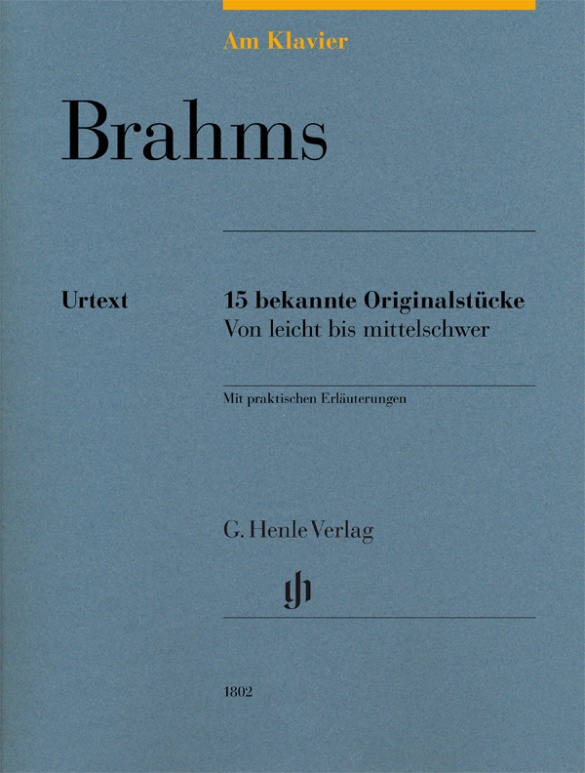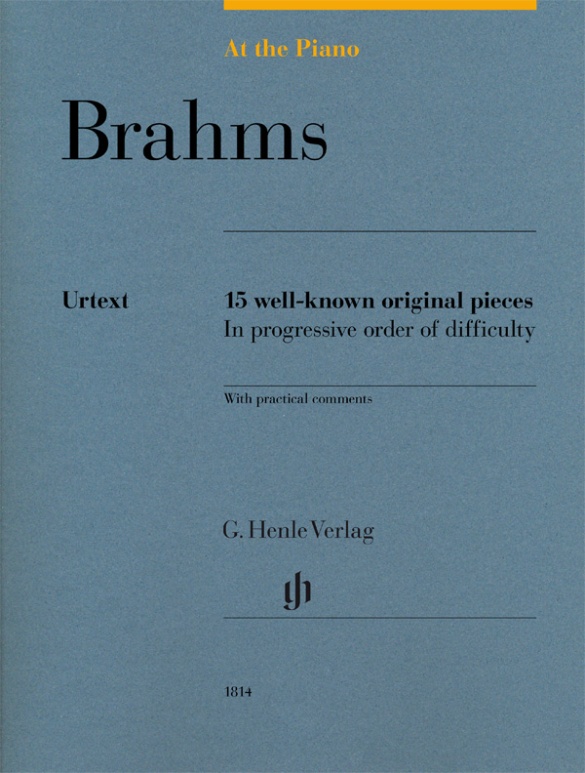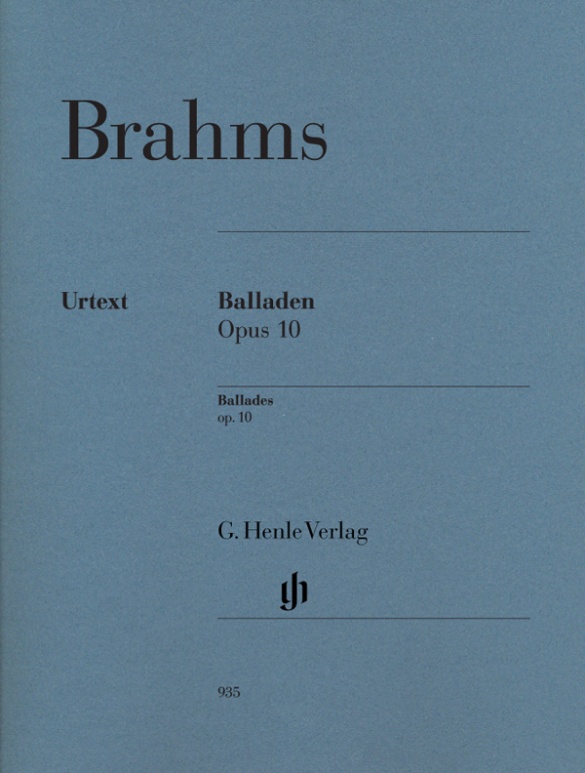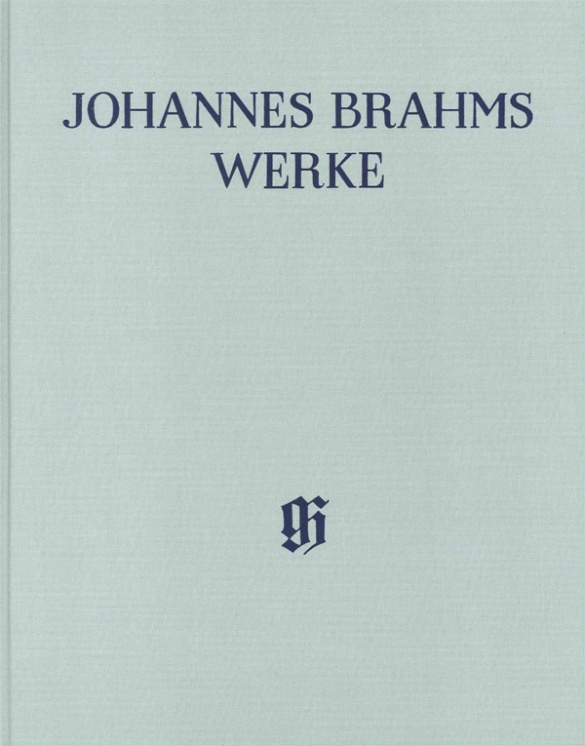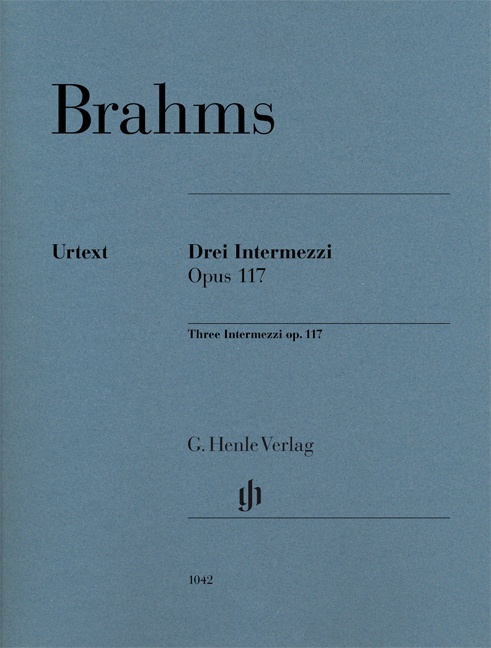

Johannes Brahms
3 Intermezzi op. 117
The three popular Intermezzi op. 117 can be seen as the epitome of Brahms’ late work for piano. Clara Schumann confessed: “In these pieces I at last feel musical life stir once again in my soul”.
Brahms reacted, as he often did, in a rather brusque manner. Although he sometimes described the three Intermezzi as being “Wiegenlieder” (lullabies), he formally rejected this title: “It should then say, lullaby of an unhappy mother or of a disconsolate bachelor.” The new edition of these moderately difficult Intermezzi (level of difficulty 5/6) has now been revised following the musical text of the Brahms Complete Edition, and has fingerings by Andreas Boyde.
Content/Details
About the Composer

Johannes Brahms
His significant output comprises chamber music, piano works, numerous choral compositions and songs (including settings of folk-song lyrics), as well as large-scale orchestral works in the 1870s and 1880s. His compositions are characterized by the process of developing variation. He is considered an antithesis to the New German School around Liszt, and an advocate of “absolute” music.
| 1833 | Born in Hamburg on May 7, the son of a musician. His first piano instruction with Willibald Cossel at age seven, then with Eduard Marxen; first public performances from 1843. |
| 1853 | Concert tour through German cities; he meets Schumann, who announces him as the next great composer in his essay “Neue Bahnen” (“New Paths”). A lifelong, intimate friendship develops with Clara Schumann. |
| 1854–57 | Piano Concerto No. 1 in D minor, Op. 15. |
| 1857–59 | Choir director, pianist, and teacher at the royal court in Detmold. |
| 1859–61 | Director of the Hamburg Women’s Choir. |
| 1860 | Manifesto against the New Germans around Liszt. |
| 1863 | Cantata “Rinaldo,” Op. 50. |
| 1863–64 | Director of the Wiener Singakademie. |
| 1868 | Partial performance in Vienna of “A German Requiem,” Op. 45 (the complete work premiered in Leipzig in 1869) |
| 1871–74 | Artistic director of the Gesellschaft der Musikfreunde (Society of Friends of Music) in Vienna. |
| 1873 | Haydn Variations, Op. 56a, for orchestra. |
| from 1877 | His symphonic output begins with the Symphony No. 1 in C minor, Op. 68 (begun 1862); composition of the Symphony No. 2 in D major, Op. 73; the Symphony No. 3 in F major, Op. 90 (1883); and Symphony No. 4 in E minor, Op. 98 (1884–85): cantabile themes, chamber-music-like style. |
| from 1878 | Travels in Italy. |
| 1878 | Violin Concerto in D major, Op. 77, for Joseph Joachim. |
| 1881 | Piano Concerto No. 2 in B-flat major, Op. 83, with a scherzo movement. |
| 1886 | Honorary president of Vienna’s Tonkünstlerverein (Association of Musicians). |
| 1897 | Four Serious Songs, Op. 121. Dies in Vienna on April 3. |
About the Authors
Andreas Boyde (Fingering)
Andreas Boyde, was born in 1967 in Oschatz/Saxony and studied the piano in Dresden and London. He has appeared as a soloist with renowned orchestras such as the London Philharmonic Orchestra, the Sächsische Staatskapelle Dresden, the Malaysian Philharmonic Orchestra, the Prague Radio Orchestra, the Auckland Philharmonia Orchestra, the Bamberg Symphony Orchestra, the Hallé Orchestra Manchester, the Bolshoi Symphony Orchestra and the London Mozart Players.
Boyde’s repertoire comprises key works from all periods, also including contemporary composers such as Paul Schoenfield and John Pickard. Boyde has recorded Brahms’s complete solo piano works with OehmsClassics, a co-production with the WDR.
Product Safety Informations (GPSR)

G. Henle Verlag
Here you can find the information about the manufacturer of the product.G. Henle Verlag e.K.
Forstenrieder Allee 122
81476 München
Germany
info@henle.de
www.henle.com
A short preface and commentary is in each volume, completing impressive and desirable editions of these masterpieces.
Pianist, 2015recommendations
autogenerated_cross_selling
Further editions of this title
Further editions of this title


